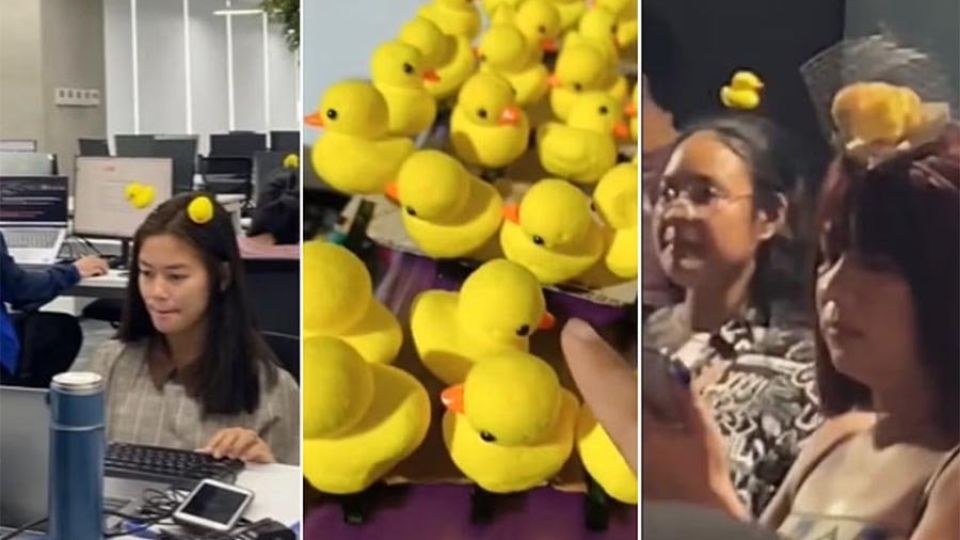February 19, 2024
SINGAPORE – Tiny, yellow ducks have lately been bouncing over the heads of Filipinos, who are delighting in a fad that, even if for a brief moment, is bringing yellow joy to what otherwise would have been mundane days.
They are hair clips attached to rubber ducks on springs.
Local media outlets said the fad began during a cosplay convention in mid-2023 in Baguio city, some 200km north of the capital Manila and a popular holiday destination for its cool climate.
With the catchphrase “May bibe na ba lahat?” (Does everyone have a duck already?) going viral on social media, the cute, yellow, plastic hair accessory can now be seen bouncing on the heads of both children and adults everywhere in the archipelago.
“It’s like you’ll feel out of place if you’re not wearing one,” Mr Jaja de Guzman told ABS-CBN News.
Ms Timmy de Quiros said: “It bounces, so it’s so cute.”
Ms Wanda Mabini also told ABS-CBN: “It looks good, even on seniors like me. It makes you look young.”
Get exclusive insights into Malaysia in weekly round-up
By signing up, you agree to our Privacy Policy and T&Cs.
There have since been variations, with chickens and hearts in place of ducks.
The ducks are currently being sold at 100 pesos (S$2.40) for three pieces.
Online shopping platforms Shopee and Lazada have also got into the act, selling five hair clips for about 65 pesos.
Online retailer Shein is selling the hair accessory at S$1.50 apiece in Singapore.
Buyers have been leaving cheesy comments on these sites, playing on the Tagalog word “bibe” (duck) and its homophone “baby” or “babe”.
“You’re my one and only bibe,” said one Shopee user.
Just a harmless fad
There is no deeper meaning to it, University of the Philippines’ Dr Jimmuel Naval told ABS-CBN’s radio programme TeleRadyo Serbisyo.
“We just like to follow trends. We have this compelling need to ride the bandwagon. We don’t want to be left behind, and we do this all the time, not just with hair accessories, but also with food,” he said.
“In the past, we didn’t drink coffee. Now, there’s Starbucks. We didn’t drink tea with milk back then, but now there’s milk tea,” he added. “We carry them around like a badge of honour.”
Others have traced the fad to China, where wearing hair clips with sprouts, grass and flowers became a fashion trend in 2015.
Millions of clips were sold online that year. One bestselling store on Taobao, China’s most popular online shopping platform, sold more than a million clips, CNN reported.
Professor Gao Xuanyang, a sociologist at Shanghai Jiao Tong University, told CNN it is not surprising that sprout clips and their alternatives have become fast fashion in China.
“People need something fresh to enrich their mundane lives,” he said. “Be it a hair clip, a purse or a T-shirt.”


